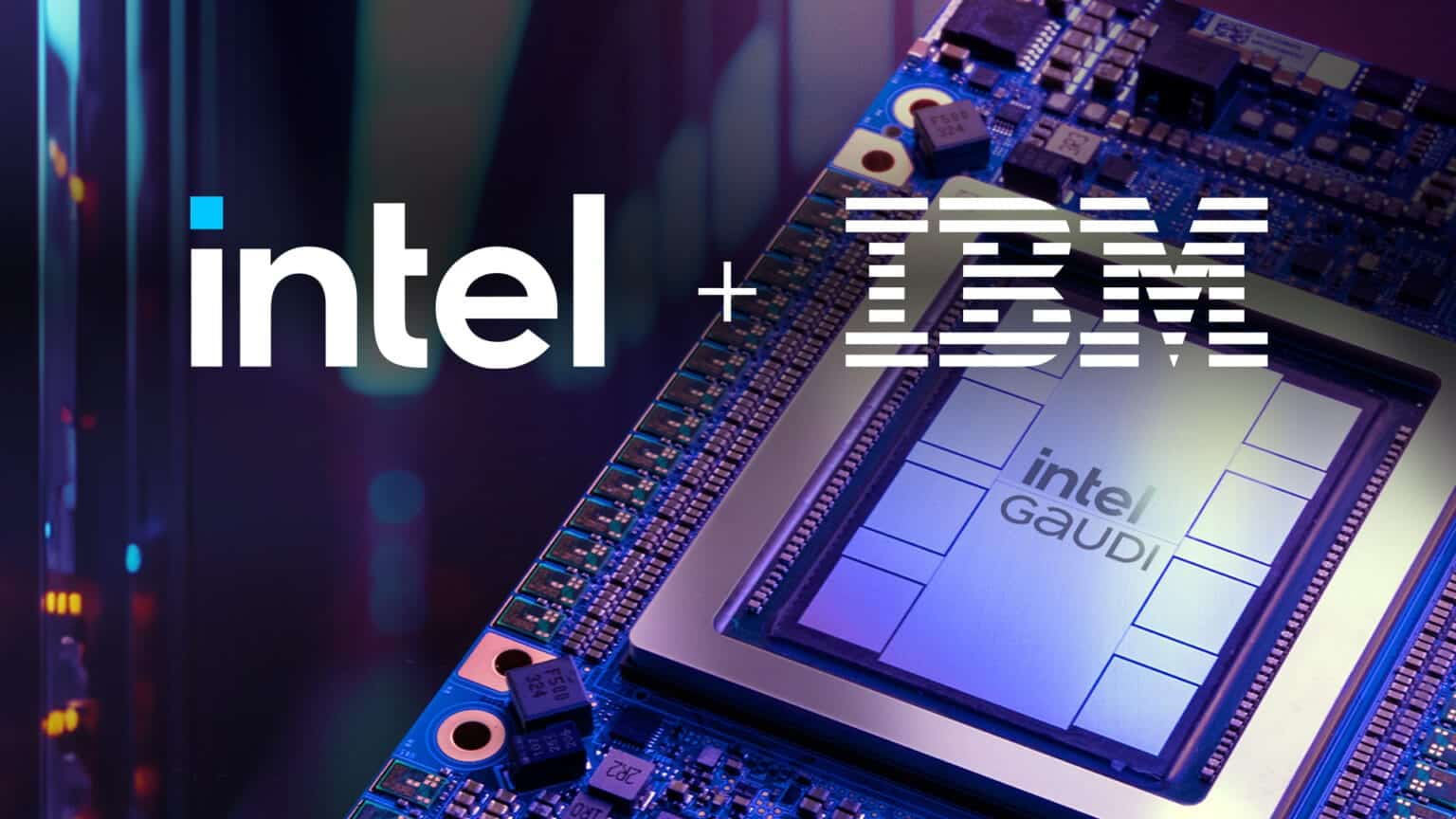The partnership between IBM and Intel aims to accelerate the adoption of generative models with a more accessible, powerful, and cost-effective platform for businesses.
In a strategic move that redefines the landscape of enterprise artificial intelligence, IBM Cloud has announced that it now offers access to the AI accelerators Intel® Gaudi® 3, becoming the first cloud service provider to deploy this new generation of hardware. The deployment —initially available in the cloud regions of Frankfurt, Washington D.C., and Dallas— represents the first major commercial use of Gaudi 3 and opens new doors for businesses looking to leverage generative AI without incurring the high costs associated with other traditional GPU solutions.
More performance, lower cost: a new equation for AI
The big promise of Intel Gaudi 3 is to break the economic barrier of advanced AI without compromising performance. According to benchmarks from Signal65, commissioned by Intel, Gaudi 3 offers up to 92% more cost efficiency in performance when running models like Llama-3.1-405B-Instruct-FP8 compared to other competing platforms. This advantage not only facilitates access to AI for more businesses, but also accelerates the training, inference, and fine-tuning of multimodal models and LLMs, including tasks with large contexts and RAG (Retrieval-Augmented Generation) architectures.
“By integrating Intel Gaudi 3 into IBM Cloud, we are making it easier for businesses to scale their generative AI workloads with optimized performance for both inference and fine-tuning,” explained Saurabh Kulkarni, Vice President of AI Strategy at Intel’s Data Center.
The data supports this: in models such as IBM Granite-3.1-8B-Instruct, Gaudi 3 has demonstrated 43% more tokens per second in small workloads and 36% more with large contexts, resulting in faster outcomes and lower operational costs.
AI for critical sectors and regulated environments
IBM Cloud is known for serving highly regulated sectors such as banking, insurance, healthcare, and public administration. Now, with Gaudi 3 as part of its infrastructure, these sectors can benefit from a more efficient, scalable, and secure AI platform, also supported by technologies such as Red Hat OpenShift and IBM’s watsonx suite, which is expected to be compatible later this quarter.
Common applications include:
- Fraud detection in financial services.
- AI-assisted diagnosis and drug discovery in healthcare.
- Inventory automation and personalization in retail.
- Modernization of legacy applications with advanced security standards.
“Intel Gaudi 3 offers our customers more options, more freedom, and a more cost-effective AI platform,” said Satinder Sethi, General Manager of IBM Cloud Infrastructure Services.
Availability and flexible deployment
Customers can access Gaudi 3 through IBM Cloud Virtual Servers in VPC environments, with plans to expand to multiple architectures in the second half of 2025. This model facilitates flexible deployment for those wishing to test, scale, and tune AI models in a secure, private environment with high levels of control.
Additionally, this IBM strategy responds to the explosive growth anticipated for generative AI: according to Gartner, global spending on GenAI is expected to reach $644 billion by 2025, with a year-over-year growth of 76.4% compared to 2024.
The deployment of Intel Gaudi 3 in IBM Cloud marks an important milestone in business access to next-generation artificial intelligence. At a time when AI demand is growing exponentially, reducing costs, increasing performance, and maintaining technological sovereignty becomes a priority. The collaboration between IBM and Intel provides businesses with a genuine platform to innovate, experiment, and transform their digital future.
Source: Intel

